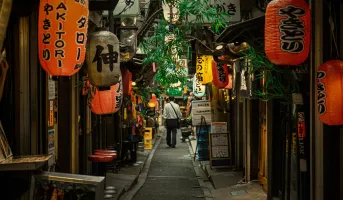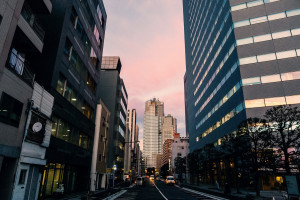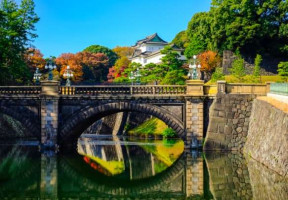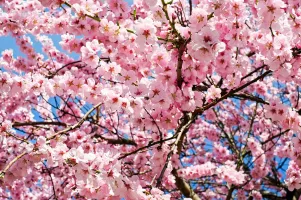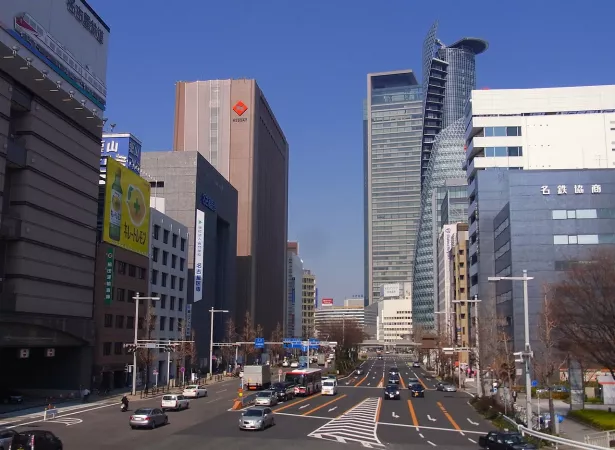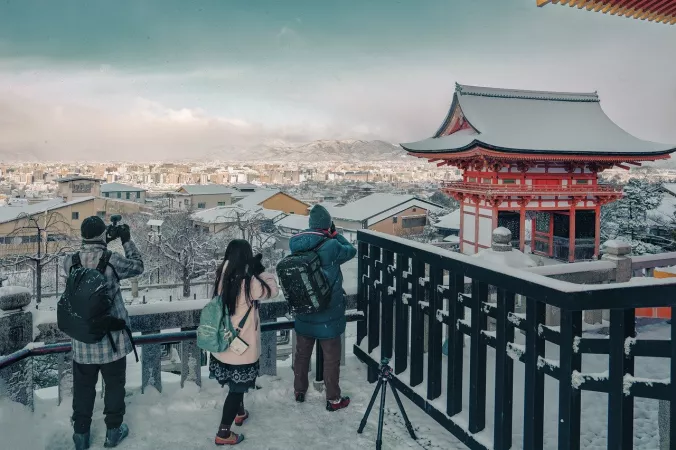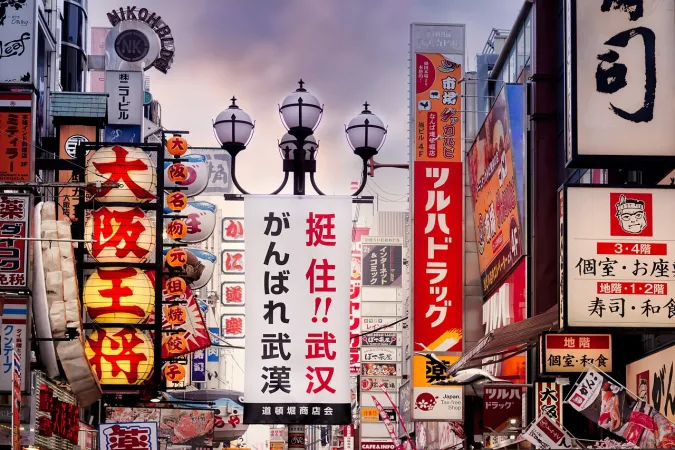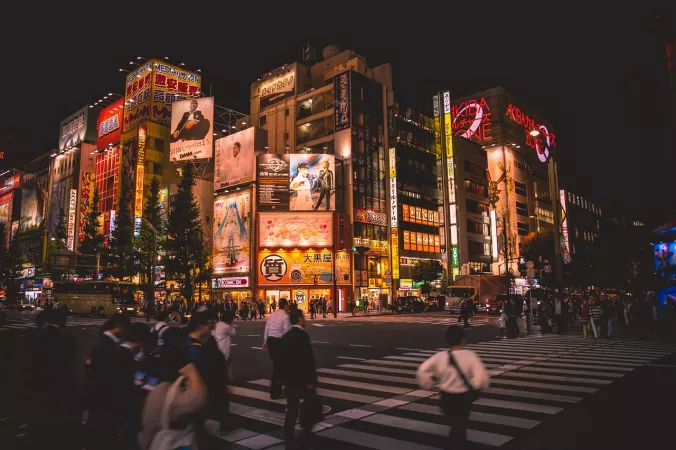
Tokyo Travel Guide
Tokyo, the bustling capital of Japan, is a vibrant metropolis known for its unique blend of traditional culture and modern technology. Situated on the eastern coast of Honshu, the largest of Japan's islands, Tokyo is a city where ancient temples stand alongside skyscrapers, offering visitors a fascinating glimpse into the country's rich history and cutting-edge innovation. Renowned for its efficient public transportation system, delicious cuisine, and vibrant pop culture scene, Tokyo is a must-visit destination for travelers around the world.Top Attractions in Tokyo
- Senso-ji Temple
- Tsukiji Fish Market
- Shibuya Crossing
- Tokyo Disneyland
- Ginza Shopping District
Tokyo is Famous for
Tokyo is famous for its blend of traditional culture and modern technology, efficient public transportation system, delicious cuisine, and vibrant pop culture scene.Top Attractions in Tokyo
- Exploring the historic Asakusa neighborhood
- Admiring the view from the Tokyo Skytree
- Visiting the Meiji Shrine in Shibuya
- Indulging in sushi at Tsukiji Outer Market
- Shopping for electronics in Akihabara
What's Great about Travelling to Tokyo?
- Immerse in traditional Japanese culture
- Experience cutting-edge technology
- Enjoy delicious and diverse cuisine
What's Not So Great about Travelling to Tokyo?
- High cost of living
- Language barrier for non-Japanese speakers
- Crowded public transportation
Travel Tips for Tokyo
- Obtain a Suica or Pasmo card for convenient transportation
- Respect local customs and traditions
- Try different types of Japanese cuisine
Important Tokyo trip information
- Ideal Duration: A week to explore the city's main attractions
- Best Time to Visit: Spring (March to May) and Autumn (September to November) for pleasant weather
- Nearby Airports and Railway Stations: Narita International Airport, Haneda Airport, Tokyo Station, Shinjuku Station
Top 14 Places to visit in Tokyo
Per Person
2,99,000
*EXCLUDING APPLICABLE TAXES 4.9 Ratings
( 362 Reviews )
( 362 Reviews )
Per Person
73,990
*EXCLUDING APPLICABLE TAXES 5.0 Ratings
( 26 Reviews )
( 26 Reviews )
Per Person
96,654
*EXCLUDING APPLICABLE TAXES 5.0 Ratings
( 393 Reviews )
( 393 Reviews )
Per Person
1,20,000
*EXCLUDING APPLICABLE TAXES Per Person
81,400
*EXCLUDING APPLICABLE TAXES Per Person
1,94,900
*EXCLUDING APPLICABLE TAXES 5.0 Ratings
( 9 Reviews )
( 9 Reviews )
FAQ's on Tokyo
Q1: What is the best time to visit Tokyo?
The best time to visit Tokyo is during the spring months of March to May and the autumn months of September to November. These periods offer mild temperatures, cherry blossoms in spring, and beautiful autumn foliage. Avoid the hot and humid summer months and the chilly winter season. Consider visiting during major events like the cherry blossom festivals in spring or the traditional festivals in autumn for a unique experience.
Q2: Do I need a visa to travel to Tokyo?
Tourists from many countries can enter Japan visa-free for short stays. However, it is essential to check the visa requirements based on your nationality before traveling. Some countries may have specific visa regulations or visa on arrival options. Make sure your passport has sufficient validity and meet any other entry requirements.
Q3: What are the must-visit attractions in Tokyo?
Tokyo offers a plethora of attractions, including the iconic Tokyo Tower, historic Senso-ji Temple, bustling Shibuya Crossing, the serene Meiji Shrine, and the trendy neighborhoods of Harajuku and Shinjuku. Don't miss exploring the traditional district of Asakusa, shopping in Ginza, and experiencing the vibrant nightlife in Roppongi.
Q4: Is Tokyo a safe place to travel?
Tokyo is considered one of the safest cities in the world with low crime rates. However, like any major city, it's advisable to stay cautious, especially in crowded areas and public transport. Avoiding dark alleys at night and taking care of personal belongings are recommended. Always carry a form of identification and emergency contact information.
Q5: What is the local currency in Tokyo and can I use credit cards?
The local currency in Tokyo is the Japanese Yen (¥). Credit cards are widely accepted in major establishments, but it's recommended to carry cash for smaller vendors, markets, and local eateries. ATMs are readily available in convenience stores and banks, but it's advisable to inform your bank of your travel plans to avoid any issues.
Q6: What is the local cuisine like in Tokyo?
Tokyo offers a diverse culinary scene with options ranging from traditional sushi and ramen to modern fusion dishes. Try street food like takoyaki (octopus balls) and okonomiyaki (savory pancakes), visit izakayas for casual dining, and indulge in fine dining experiences. Be open to trying unique dishes like natto (fermented soybeans) and tempura.
Q7: What transportation options are available in Tokyo?
Tokyo has an efficient transportation system, including subways, trains, buses, and taxis. The city's subway network is extensive and easy to navigate, with English signage available. Consider purchasing a prepaid IC card like Suica or Pasmo for convenient travel. Taxis are available but can be expensive, so opt for public transport for cost-effective travel.
Q8: Are there any cultural norms or etiquette I should be aware of when visiting Tokyo?
When visiting Tokyo, it's important to respect local customs and etiquette. Bowing is a common form of greeting, remove your shoes when entering homes or certain establishments, and avoid loud or disruptive behavior in public places. Learn basic Japanese phrases like "arigatou" (thank you) and "sumimasen" (excuse me) to show politeness and courtesy. Remember to always be respectful towards the local culture and traditions.
Q9: I am a travel agent. How can I buy travel leads of Tokyo?
Register yourself as a travel agent at agents.tripclap.com and then you can buy travel leads to Tokyo once your account is approved. For more details contact our support team at +91-8069186564 or support@tripclap.com
